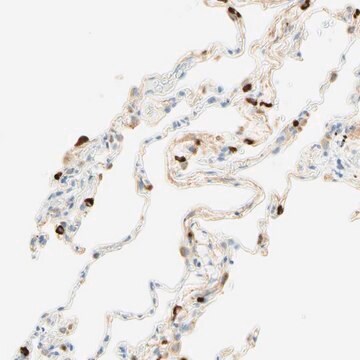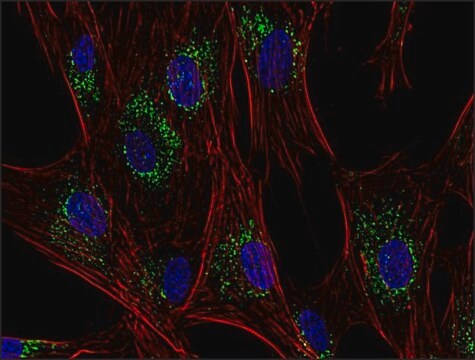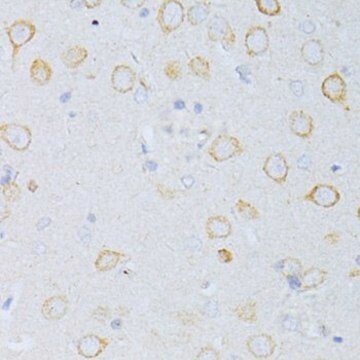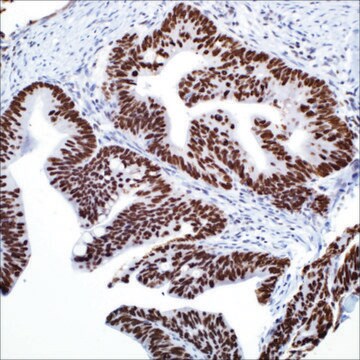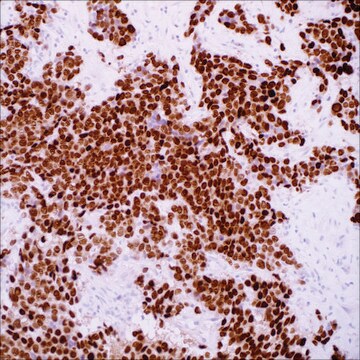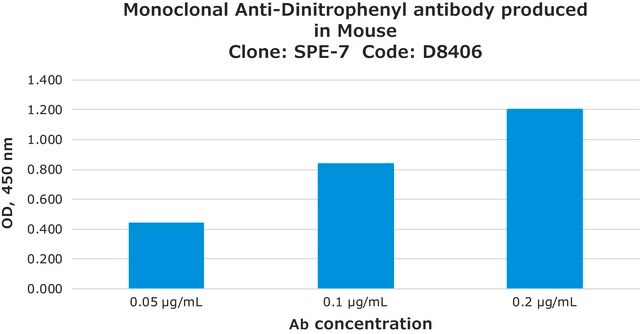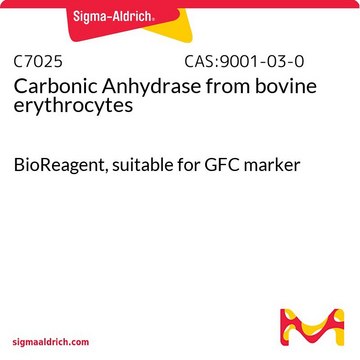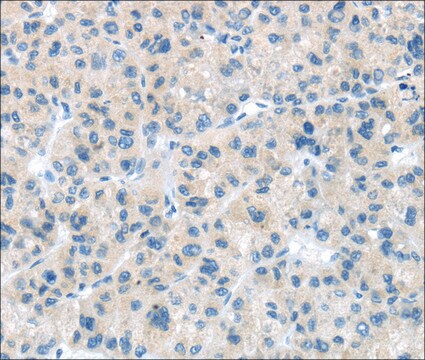263M-1
CD63 (NKI/C3) Mouse Monoclonal Antibody
About This Item
Empfohlene Produkte
Biologische Quelle
mouse
Qualitätsniveau
100
500
Konjugat
unconjugated
Antikörperform
diluted ascites fluid
Antikörper-Produkttyp
primary antibodies
Klon
NKI/C3, monoclonal
Beschreibung
For In Vitro Diagnostic Use in Select Regions (See Chart)
Form
buffered aqueous solution
Speziesreaktivität
human
Verpackung
vial of 0.1 mL concentrate (263M-14)
vial of 0.5 mL concentrate (263M-15)
bottle of 1.0 mL predilute (263M-17)
vial of 1.0 mL concentrate (263M-16)
bottle of 7.0 mL predilute (263M-18)
Hersteller/Markenname
Cell Marque®
Methode(n)
immunohistochemistry (formalin-fixed, paraffin-embedded sections): 1:100-1:500
Isotyp
IgG1κ
Kontrolle
melanoma
Versandbedingung
wet ice
Lagertemp.
2-8°C
Visualisierung
cytoplasmic, membranous
Angaben zum Gen
human ... CD63(967)
Allgemeine Beschreibung
Qualität
 IVD |  IVD |  IVD |  RUO |
Verlinkung
Physikalische Form
Angaben zur Herstellung
Sonstige Hinweise
Rechtliche Hinweise
Sie haben nicht das passende Produkt gefunden?
Probieren Sie unser Produkt-Auswahlhilfe. aus.
Hier finden Sie alle aktuellen Versionen:
Analysenzertifikate (COA)
It looks like we've run into a problem, but you can still download Certificates of Analysis from our Dokumente section.
Wenn Sie Hilfe benötigen, wenden Sie sich bitte an Kundensupport
Besitzen Sie dieses Produkt bereits?
In der Dokumentenbibliothek finden Sie die Dokumentation zu den Produkten, die Sie kürzlich erworben haben.
Unser Team von Wissenschaftlern verfügt über Erfahrung in allen Forschungsbereichen einschließlich Life Science, Materialwissenschaften, chemischer Synthese, Chromatographie, Analytik und vielen mehr..
Setzen Sie sich mit dem technischen Dienst in Verbindung.